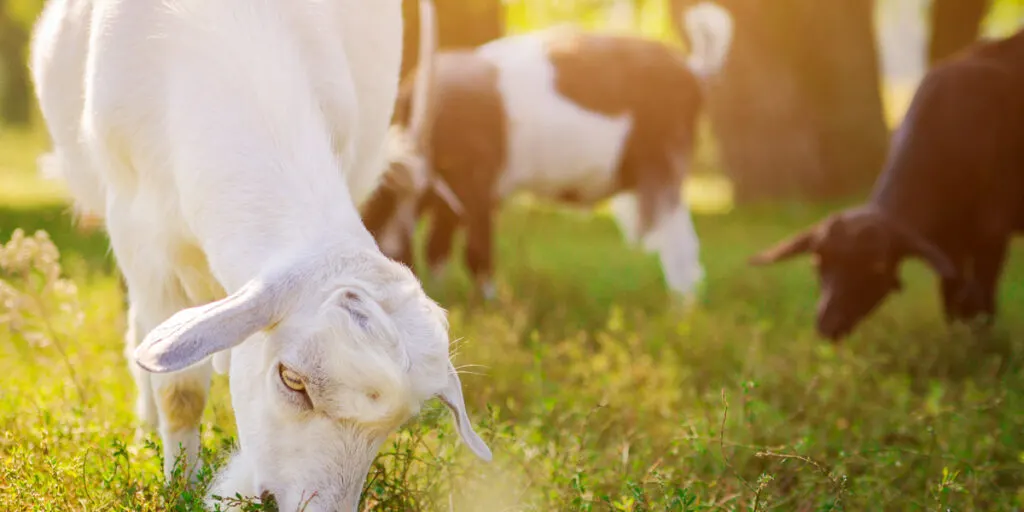Goat cheese is a dairy product that is loved all around the world. It comes in a variety of tastes and flavors. Fresh goat cheese is soft in texture, while aged varieties are saltier and have a crumbly texture.
While the process of making cheese from cow’s milk and goat’s milk is the same, the cheese itself differs in the amount of nutrients it contains. Moreover, goat cheese is commonly used as an alternative for people who are allergic to cow’s milk.
For this article, we’ll explain some of the benefits of goat cheese and why it is good for your health.

Table of Contents
What Is Goat Cheese?
Goat cheese is a type of cheese that is made from goat’s milk. Compared to cow’s milk, goat’s milk is healthier because it has a lesser amount of sodium and lactose. It is also easier to digest and has the same, if not more, amount of vitamins and minerals.
As mentioned, goat cheese comes in different varieties. Some can be bought fresh, while some are aged. Fresh goat cheeses are usually used in salads, while aged ones are used similarly to how aged cow cheeses are used.
But the question is, why should you opt for goat cheese instead of cow cheese? Read on to find out.
11 Benefits of Goat Cheese
1. Goat cheese contains fewer calories than cow cheese
As previously mentioned, goat cheese has significantly fewer calories compared to cow cheese.
In general, goat cheese only contains 75 calories per ounce, while cow cheeses, such as Swiss cheese, contain 108 calories per ounce.
Meanwhile, cheddar cheese has 115 calories.
2. Goat cheese contains probiotics
Depending on the variety, goat cheese contains several probiotics, or gut-friendly bacteria, that are helpful in human digestion. Some of these bacteria include L. acidophilus and L. plantarum.
Cheese is known to protect probiotics during digestion, allowing higher amounts of probiotics to be transferred to the gut. Once established, these bacteria aid in reducing inflammation, boosting immunity, and improving digestive health.
3. Goat cheese helps lower the chances of suffering from cardiovascular disease and liver damage
Goat cheese makes a good alternative to regular cheese because it has a lesser amount of fat and cholesterol. It contains short- and medium-sized fatty acid chains, including caproic acid, capric acid, and caprylic acid, which are all easier to digest.
4. Goat cheese has a lower amount of sodium

On average, goat cheese contains only 118 mg of sodium, while parmesan cheese, as derived from cow milk, has 511 mg per ounce.
To give you an idea, the recommended sodium intake for adults is 2,300 mg per day. However, it is recommended to limit it to below 1,500 mg. This is because too much sodium intake can result in critical health problems, including renal failure, heart attack, and hypertension.
It is also important to note that an inadequate intake of salt can also be equally dangerous.
5. Goat cheese contains more vitamins and minerals than cow cheese
Although goat cheese is sourced from smaller animals, it contains more vitamins and minerals than cow cheese.
Some of these include vitamins A, B, and K, riboflavin, folate, and niacin, which are all essential in maintaining good bone and exoskeleton health. These elements also aid in the synthesis of red blood cells.
In addition, copper, iron, calcium, phosphorus, magnesium, and potassium are among the minerals found in goat cheese, ensuring that enzymatic activities run smoothly.
6. Goat cheese is easier to digest

Goat cheese is easier to digest compared to regular cheese since it has a different protein structure compared to the latter. Moreover, goat cheese contains a lesser amount of lactose – the main carbohydrate in milk that is produced by mammals.
Such characteristics enable those people who are allergic to cow’s milk to drink goat’s milk without having any side effects. This is a huge plus factor because about 70% of the world’s population is having issues in digesting lactose, such as bloating, diarrhea, and stomachache.
However, it is important to note that regardless of the cheese type, softer cheeses contain more lactose than hard, matured ones.
7. Goats are easier to care for
If you have a farm or a ranch and want to produce cheese on your own, goats would be a better choice than cows for the following reasons:
- Goats are more space-friendly because they are smaller than cows
- Goats are adaptable animals – they can survive in places where other dairy animals can’t
- Goats are easy to feed – they would happily chew on different plants, including weeds, scrub, shrubs, small trees, and herbs.
8. Goat cheese promotes weight loss

As previously mentioned, goat milk contains short- and medium-chain fatty acids which are easier to digest. This results in an immediate source of energy, thus giving humans an increased feeling of satisfaction or fullness.
Increasing fullness and reducing the feeling of hunger are two important factors in promoting weight loss. Moreover, goat cheese and other products made up of goat milk help reduce inflammation in the body.
9. Goats are highly efficient milk makers
Again, despite being small herbivores, feeding an average goat and an average cow 70 pounds of food each will not yield the same amount of milk. Instead, goats will produce one more gallon of milk than cows.
10. Goat cheese promotes better bone health
Goat cheese is packed with calcium – an important nutrient that helps keep your bones, teeth, and organs strong. Thus, consuming goat cheese will help prevent your body from suffering from osteoporosis and other bone problems.
11. Goats are good for fire prevention

Goats are often given the job to eat excess plants, which, in the long run, reduces the risk of forest fires. This is especially true for drought-stricken zones and regions.
The Bottom Line
In conclusion, goat cheese is a healthy and nutritious dairy product that is packed with healthy fats, friendly bacteria, vitamins, and minerals. Moreover, it also makes a friendlier option for allergy sufferers and people that are suffering from lactose intolerance.
Goat cheese can be used the same way you use regular cheese. It delivers the same versatility that cow cheese provides to your dishes, whether it is soft or hard, sweet or savory.
